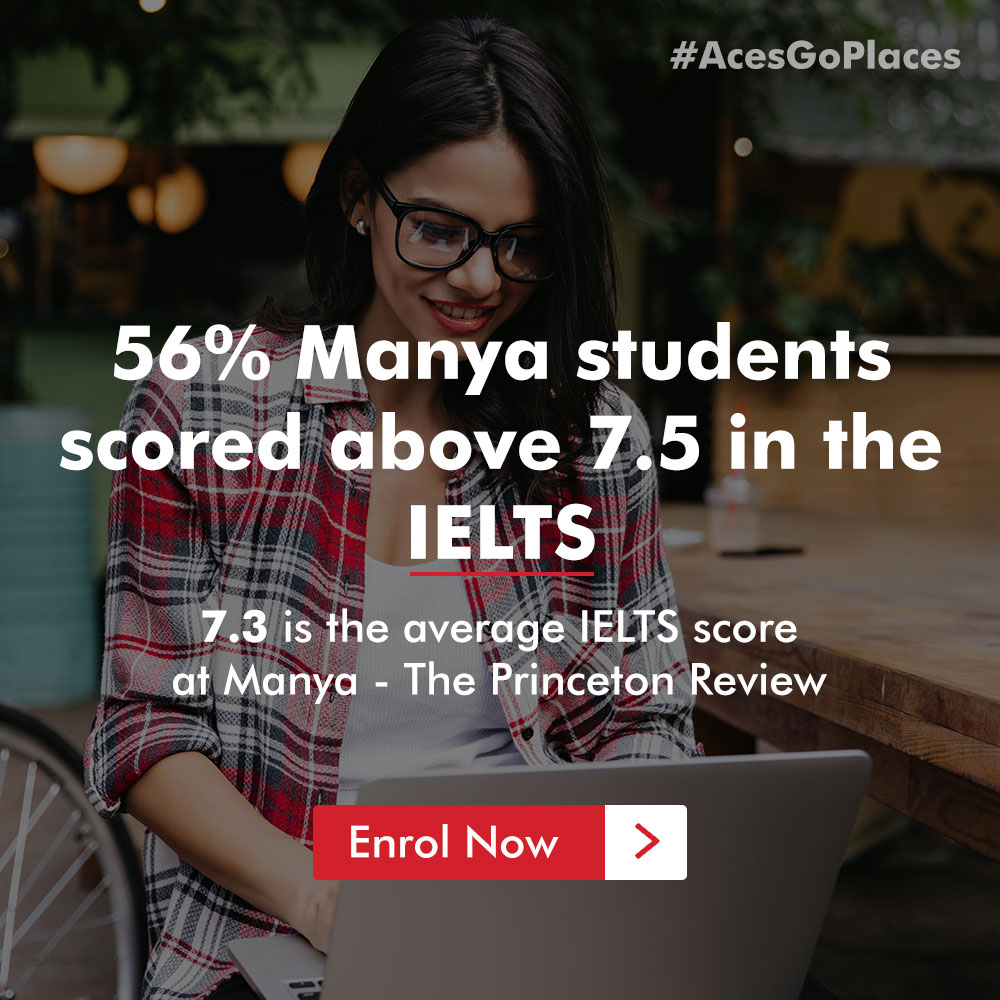An MS degree is a PG program that offers advanced knowledge in a particular Science field. Millions of Indian students who aspire to excel in their chosen path pursue MS.
If you have graduated in Science, taking up an MS degree can benefit you. Once you know all about MS and pursue it, job opportunities will be plentiful. Take your interests, career goals, and finances into account before taking a step.
A well-planned and executed MS program can reward you with a fulfilling career. Let’s discuss all about this PG degree in this blog.
Why Study an MS Abroad?
An MS degree can boost your resumé. Having a degree in a specialized field, that too in science, can give you the competitive edge you need. Here’s all you need to know about MS and why you should pursue it:
-
Career advancement
An MS degree can speed up your career trajectory as it can open doors to higher-paying positions.
-
Specialized knowledge
Specialized knowledge in a specific area is proof that you have expertise in it. This will set you apart from other candidates. You can be a valuable asset to employers.
-
Research opportunities
Several MS programs offer valuable and modern research opportunities. This allows you to develop practical skills and contribute to knowledge advancement. You can also publish your work in prestigious journals and enhance your resumé.
-
Global opportunities
An MS degree from a renowned international institution can enhance your global employability. The international job market values experts with specialization degrees.
-
Higher earning potential
One thing you should know about MS is that graduates often get higher salaries than those with only a UG degree.
Popular trending MS Specializations
Here’s a comprehensive table showing you the popular MS specializations:
| Specialization | Focus Areas | Career Opportunities |
| Artificial Intelligence | Developing intelligent systems, machine learning models, natural language processing, and robotics. | AI engineer, machine learning scientist, robotics developer |
| Data Science | Statistical analysis, data visualization, and big data processing for decision-making and modeling. | Data scientist, data analyst, big data engineer |
| Cybersecurity | Ethical hacking, cryptography, and risk management to safeguard digital infrastructure. | Cybersecurity analyst, ethical hacker, information security manager |
| Software Engineering | Designing, developing, and maintaining complex software systems. | Software developer, QA engineer, DevOps specialist |
| Mechanical Engineering | Advanced manufacturing, product design, and robotics applications. | Mechanical engineer, product designer, robotics engineer |
| Environmental Science | Climate change, pollution control, and sustainable solutions. | Environmental consultant, policy analyst, research scientist |
| Business Analytics | Business strategy, data analysis, and trend forecasting to optimize operations. | Business analyst, operations analyst, marketing strategist |
| Biotechnology | Genetic engineering, pharmaceutical development, and sustainable technologies. | Biotech researcher, pharmaceutical scientist, agricultural innovator |
Eligibility Requirements for Pursuing MS
Here are the eligibility requirements if you are planning to pursue an MS:
- Academic qualifications: Applicants must have a bachelor’s degree or a similar relevant qualification. Some universities may also need 2–3 years of work experience for certain MS specializations.
- Standardized tests: GRE or GMAT scores may also be required, depending on the specialization. Recommended minimum scores are 310–315 for the GRE and 700+ for the GMAT.
- English proficiency: Non-native English speakers need to have proof of English proficiency by providing TOEFL, IELTS, or PTE test scores. Minimum scores range from 90–100 (TOEFL), 6.5–7.5 (IELTS), and 65–75 (PTE).
Documents required for MS
If you are planning to pursue an MS abroad, you’ll find the entire process way different. Although the requirements may differ from university to university, these are the generic documents usually asked for:
- Proof of Funds
- Academic documents
- English proficiency test scores (TOEFL/PTE/IELTS)
- Resumé/CV
- Entrance exam scores (GMAT/GRE)
- Statement of Purpose (SOP)
- Recommendation letters
- Passport and Visa
- Certificates of extra-curricular activities
- Proof of work experience (if any)
MS Application Process
Applying for an MS program at a foreign university can seem overwhelming, but don’t worry, we’ve broken it down into easy steps to guide you through the process:
Step 1: Research and Choose Your Program
Start by identifying MS programs that match your career aspirations, academic background, and budget. Consider factors like university rankings, course content, faculty, and research opportunities.
Step 2: Prepare the Required Documents
Gather all necessary documents including your academic transcripts, CV, letters of recommendation, and proof of English proficiency (e.g., IELTS/TOEFL). Some programs may also require a statement of purpose or personal statement.
Step 3: Take Standardized Tests (if required)
Many MS programs require GRE or subject-specific tests for admission. Register early and allocate time for preparation to achieve competitive scores.
Step 4: Submit Your Applications
Complete the online application forms for your chosen universities, attach all the required documents, and submit thoughtful essays or statements to showcase your academic interests, career goals, and why you’re a good fit for the program.
Step 5: Prepare for Interviews
Some MS programs require interviews as part of the selection process. Practice answering questions about your academic background, motivations for choosing the program, and how the degree fits your career path.
Step 6: Wait for Admission Decisions
Once your applications are submitted, all you need to do is wait for the admission results. Once accepted, confirm your enrollment and start preparing for the exciting academic journey ahead!
Types of MS
This table will highlight all the types of Masters in Science that you can opt for as per convenience:
| Mode of Study | Typical Duration | Additional Details |
| Full-Time (UK) | 1 year | Typically completed over 12 months; shorter than a BSc but with a longer academic year. |
| Full-Time (Europe) | 1.5–2 years | Often includes summer placements or internships between study years. |
| Part-Time | 2–3 years | Flexible schedule to accommodate working professionals or other commitments. |
| Postgraduate Certificate/Diploma | Varies (usually 6 months–1 year) | Shorter alternatives to an MSc for acquiring postgraduate-level skills without a dissertation requirement. |
| Integrated MSc | Typically lasts 4–5 years | Combines undergraduate and master’s studies |
Note that: MSc durations can vary significantly depending on the country, university, and subject of study. Also, keep a lookout for summer placements in European MSc programs to enhance practical experience.
Fee Structure and application Deadline of Top MS Colleges
Here’s all you need to know about MS institutes that graduates aim to go abroad to study in. You’ll find all the necessary details about MS programs in the table below:
| University | Application Deadline Range (Deadlines may vary for different specializations) | 2024-2025 Tuition Fees (Estimated) |
| National University of Singapore | 1 Oct 2024 – 28 Feb 2025 | 13,140 USD to 36,500 USD |
| The University of British Columbia (UBC) | 15th Dec 2024 – 22nd May 2025 | Nearly 6900 USD |
| University of Toronto (U of T) | 1st Dec 2024 – 28th Apr 2024
|
Nearly 32,000 USD – 33,000 USD |
| Harvard University | 1st Dec 2024 – 15th Apr 2024 | 55,656 USD |
| University of Oxford (OU) | 3rd Dec 2024 – 4th March 2024 | Can be as high as 60,000 USD depending on the program |
International Scholarships for MS Students
If you’re an MS aspirant looking to study abroad, numerous scholarships can help ease the financial burden of pursuing higher education. These international scholarships offer opportunities to study in some of the most prestigious universities and institutions globally:
| Scholarship Name | Country | Deadline |
| Linnaeus University Scholarships | Sweden | 15 Jan/12 Feb 2025 |
| VLIR-UOS ICP Connect Scholarships | Belgium | 1/28 Feb 2025 |
| Commonwealth Shared Scholarship Scheme | UK | 12 Dec 2024 |
| ENS International Selection Scholarships | France | 12 Dec 2024 |
| Uppsala University Global Scholarships | Sweden | 15 Jan/3 Feb 2025 |
| The University of Gothenburg Axel Adler Scholarships | Sweden | 15 Jan/mid-Feb 2025 |
| The Karolinska Institutet Global Master’s Scholarships | Sweden | 15 Jan/26 Feb 2025 |
| Ampère Excellence Scholarships | France | 31 Jan 2025 |
| Nottingham Developing Solutions Scholarships | UK | 16 April 2025 |
| Mälardalen University Scholarship Programme | Sweden | 15 Jan/3 Feb 2025 |
| University of Skövde Master’s Scholarships | Sweden | 3 Feb 2025 |
| Swedish Institute Scholarships for Global Professionals | Sweden | 15 Jan/26 Feb 2025 |
Frequently Asked Questions (FAQs)
What are the eligibility criteria for pursuing an MS?
You will need a bachelor’s degree in a relevant field. You need to have a good academic record. Some MS programs will also need you to sit for entrance exams.
What are the job prospects after an MS degree?
After MS there are many lucrative opportunities. You can choose to pursue IT, engineering, healthcare, finance, and even academia.
Should one pursue an MS immediately after UG?
It all depends on what your goals are. If you want to delve deeper into research, immediately applying for it is ideal. But, if you want to gain work experience to enhance your application, you can also do so.
What is the duration of an MS program?
Most MS programs take 1-2 years to complete. It depends on the institution. You can learn all about MS duration on the websites of most universities and institutes.
Are there any online MS programs available?
Yes, many institutes offer online MS programs. This is a flexible option for working professionals.




